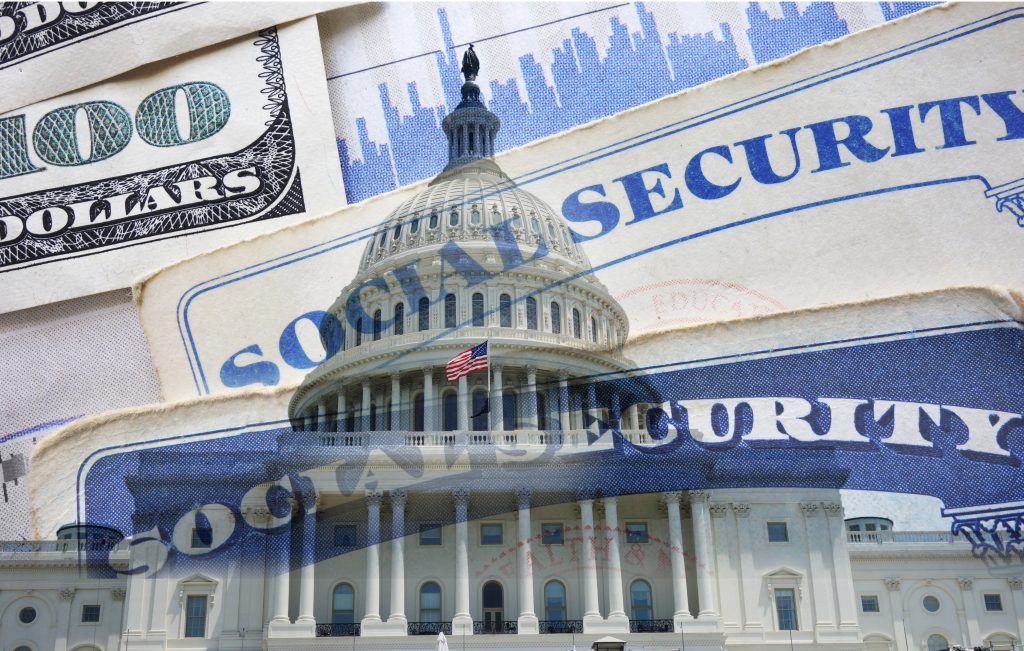The amount of money you can expect from Social Security in retirement isn’t something you want to guess at. Those benefits might be an important part of your senior income, so it’s important to know what monthly check to anticipate.
Thankfully, there’s a pretty easy way to know how much Social Security you’re entitled to. Just create an account on the Social Security Administration’s website and access your most recent earnings statement. It should give you an estimate of your monthly benefit so there are no surprises.
Where to invest $1,000 right now? Our analyst team just revealed what they believe are the 10 best stocks to buy right now. Learn More »

Image source: Getty Images.
But even if you take that step, you may find that your monthly Social Security checks are still smaller than you thought they would be. Here are a couple of reasons why.
1. You’re having benefits withheld for exceeding the earnings-test limits
You’re allowed to hold down a job — and earn money from it — while collecting Social Security. But if you’re doing so before having reached full retirement age, which is 67 for anyone born in 1960 or later, then you should be aware that you’ll be subject to the program’s earnings-test limit. And exceeding that limit could mean having some of your Social Security withheld, resulting in a smaller payment each month.
The earnings-test limit in 2025 is $23,400. Beyond that, you’ll have $1 in Social Security withheld for every $2 you earn from a job.
However, if you’ll be reaching full retirement age this year, the earnings-test limit is much higher at $62,160. And you’ll only have $1 in Social Security withheld per $3 of earnings above that threshold.
Now rest assured that benefits withheld for exceeding the earnings-test limit aren’t lost forever. Once you reach full retirement age, your monthly Social Security checks should start increasing. But if your benefits are smaller initially and you’re working, this could be the reason why.
2. You’re paying for Medicare Part B
Medicare Part A, which covers hospital care, is generally free for enrollees. But Part B, which covers outpatient care, requires enrollees to pay a monthly premium for coverage.
That premium can go up from one year to the next. And it’s a premium you can pay directly if you’re not on Social Security.
But if you’re getting Social Security, you’ll have your Medicare Part B premiums paid out of your monthly benefits automatically. And that’s a good thing, since it gives you one less bill to worry about paying each month. But it also means you might get less of an actual Social Security payment.
You should also know that if you’re a higher earner, you may be subject to a Medicare surcharge known as an income-related monthly adjustment amount. If so, you could see a large chunk of your Social Security check get whittled down each month.
If you expect to depend on Social Security to cover your retirement expenses, then it’s important to understand the factors that could result in smaller benefits. Spend some time reading up on Social Security so there are no unwanted surprises for you to contend with.
The $22,924 Social Security bonus most retirees completely overlook
If you’re like most Americans, you’re a few years (or more) behind on your retirement savings. But a handful of little-known “Social Security secrets” could help ensure a boost in your retirement income.
One easy trick could pay you as much as $22,924 more… each year! Once you learn how to maximize your Social Security benefits, we think you could retire confidently with the peace of mind we’re all after. Join Stock Advisor to learn more about these strategies.
View the “Social Security secrets” »
The Motley Fool has a disclosure policy.
 benzinga.com
benzinga.com



